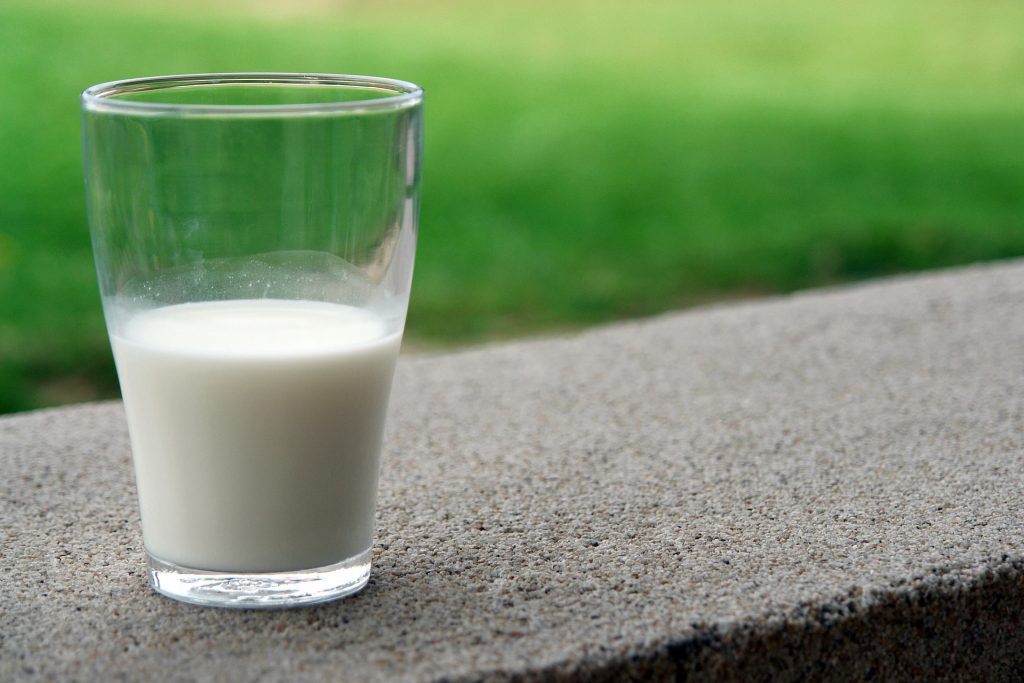 Fluoride is ubiquitous in the foods and drinks that humans consume. Fluoride can also be present in the air as pollution in the form of hydrogen fluoride. Exposure to increasing amounts of food and airborne fluoride is a concern because fluoride is a neurotoxin and can lead to the development of dental and skeletal fluorosis, both of which are forms of fluoride toxicity. When fluoride is ingested it is absorbed to the blood and blood levels peak at about 1 hour after ingestion and fall reaching baseline values at around 4 to 6 hours. Fluoride is absorbed best under fasting conditions, and the addition of food to the gastrointestinal tract decreases absorption significantly. A number of minerals are known to interfere with fluoride absorption including calcium, magnesium and phosphorus. Foods containing high concentrations of these minerals may therefore significantly reduce the absorption of fluoride from the diet, although they would have no effects on airborne fluoride as this is absorbed through the lungs.
Fluoride is ubiquitous in the foods and drinks that humans consume. Fluoride can also be present in the air as pollution in the form of hydrogen fluoride. Exposure to increasing amounts of food and airborne fluoride is a concern because fluoride is a neurotoxin and can lead to the development of dental and skeletal fluorosis, both of which are forms of fluoride toxicity. When fluoride is ingested it is absorbed to the blood and blood levels peak at about 1 hour after ingestion and fall reaching baseline values at around 4 to 6 hours. Fluoride is absorbed best under fasting conditions, and the addition of food to the gastrointestinal tract decreases absorption significantly. A number of minerals are known to interfere with fluoride absorption including calcium, magnesium and phosphorus. Foods containing high concentrations of these minerals may therefore significantly reduce the absorption of fluoride from the diet, although they would have no effects on airborne fluoride as this is absorbed through the lungs.

Calcium may inhibit the absorption of fluoride because it can form insoluble complexes in the gastrointestinal tract. The calcium binds to the fluoride and then the insoluble complex passes through the gastrointestinal tract and is excreted in the faeces. For this to happen alkaline salts of calcium such as calcium carbonate might be required. Calcium gluconate may be unable to form these complexes with fluoride and so may not interfere with fluoride absorption in this way. Milk does appear to have some ability to limit the absorption of fluoride.
A high intake of calcium has been shown to decrease fluoride absorption in dogs and rats. Calcium has been shown to decrease the uptake of fluoride to the skeleton of rats, and when used in combination with phosphorus, is even more effective at preventing this uptake. In humans, calcium fluoride is absorbed to a lesser decree than sodium fluoride, and fish protein containing high concentrations of calcium from bones can significantly reduce the uptake of fluoride in humans. However, the form of the minerals may be important when considering inhibition of fluoride absorption. For example in one case study, a man was fed a diet containing 1.5 mg fluoride and 230 mg calcium. The fluoridated water he drank increased fluoride intake to 4.2 mg per day. When calcium intake was increased to 2000 mg as calcium gluconate, there was no discernable difference in fluoride uptake. However in another study a calcium intake as 1300 mg calcium carbonate significantly decreased fluoride absorption.
Eat Well, Stay Healthy, Protect Yourself
RdB
